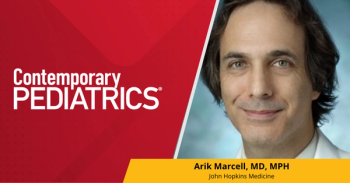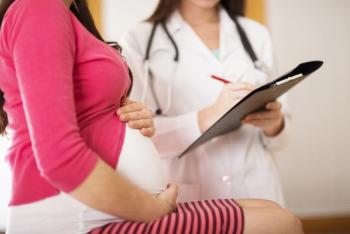
HPV vaccine and pregnancy
Women who receive the prophylactic bivalent human papilloma virus (HPV) vaccine within 90 days of pregnancy are not at an increased risk for miscarriage, underscoring the safety of the vaccine. The proven safety of the bivalent HPV vaccine should quell the concerns of women and their health care practitioners.
A recent study found that the bivalent human papilloma virus (HPV) vaccine is safe and has no increased risk for miscarriage in pregnant women.
Prior studies had suggested that the bivalent HPV vaccine was associated with a slightly increased risk of miscarriage in females who became pregnant within 90 days of receiving the vaccine; however, the recent evaluation of extended follow-up trial data proves this concern to be unwarranted, offering additional reassurances to women regarding the safety of the vaccination program.
“The results of our study provide the evidence that people have nothing to fear from this vaccination program in terms of pregnancy outcomes, and they shouldn’t be concerned that any pregnancy related adverse events are likely to occur,” said Orestis Panagiotou, MD, Division of Cancer Epidemiology & Genetics, US National Cancer Institute, National Institutes of Health, Bethesda, Maryland. “It is our opinion that they should continue to receive the bivalent HPV vaccination, based on their physician’s recommendations as well as those put forth by the Centers for Disease Control and Prevention (CDC).”
Dr Panagiotou and fellow researchers recently reported on a single center, randomized, double-blinded trial combined with an independent unvaccinated population based cohort.1 The observational long-term follow up study examined the effect of the bivalent HPV vaccine on miscarriage, defined by the CDC as fetal loss within 20 weeks of gestation, in pregnancies exposed to bivalent HPV vaccination in less than 90 days, and any time from vaccination compared with pregnancies exposed to hepatitis A vaccine and pregnancies in the unvaccinated cohort. Study participants were assigned to receive 3 doses of bivalent HPV vaccine (n=3727) or control hepatitis A vaccine (n=3739). Crossover bivalent HPV vaccine was administered in the hepatitis A vaccine arm at the end of the study. Women in the unvaccinated cohort (n=2836) received no vaccination.
Results showed that of the 3394 pregnancies that occurred since the administration of the bivalent HPV vaccine, 13.3% ended in miscarriage. In the subset of 381 pregnancies conceived fewer than 90 days from administration of the bivalent HPV vaccine, the miscarriage rate was 13.1%. The miscarriage rate in the female cohort that did not receive any vaccination was 12.8%.
The study also found that the relative risk for miscarriage of pregnancies conceived fewer than 90 days from vaccination compared with all unexposed pregnancies was 1.02, which remained similar after adjustment for age at vaccination, age at conception, and calendar year. Following bivalent HPV vaccination, the risk for miscarriage at 13 to 20 weeks gestation was 1.35 times the normal risk. This slight increase in risk was only seen in comparison with those women who received hepatitis A vaccination, and was not seen in the observational cohort of females who did not receive vaccination.
The slightly elevated risk of miscarriage in those females who conceived any time after bivalent HPV vaccination could be an artifact, Dr Panagiotou said, and should be further explored in existing and future clinical trials.
“I think that the practitioners could use our evidence as a communication tool with their patients and those females who are considering receiving the bivalent HPV vaccination,” said Dr Panagiotou. “This new knowledge can be of help when health care practitioners discuss the safety of the vaccination program and the important vaccination decisions to be made in this patient population.”
References
1. Panagiotou OA, Befano BL, Gonzalez P, et al. Effect of bivalent human papillomavirus vaccination on pregnancy outcomes: long term observational follow-up in the Costa Rica HPV Vaccine Trial. BMJ. 2015;351:h4358.
Disclosures
The author and interview subject have no relevant disclosures.
Newsletter
Access practical, evidence-based guidance to support better care for our youngest patients. Join our email list for the latest clinical updates.

![Jodi Gilman, PhD, on cumulative prenatal adversity linked to adolescent mental health risk Document Jodi Gilman, PhD, on cumulative prenatal adversity linked to adolescent mental health risk Live? Do you want this document to be visible online? Scheduled Publishing Exclude From Home Page Do you want this document to be excluded from home page? Exclude From Infinite Scroll Do you want this document to be excluded from infinite scroll? Disable Related Content Remove related content from bottom of article. Password Protection? Do you want this gate this document? (If so, switch this on, set 'Live?' status on and specify password below.) Hide Comments [Experiment] Comments are visible by default. To hide them for this article toggle this switch to the on position. Show Social Share Buttons? Do you want this document to have the social share icons? Healthcare Professional Check Is Gated [DEV Only]Do you want to require login to view this? Password Password required to pass the gating above. Title Jodi Gilman, PhD, on cumulative prenatal adversity linked to adolescent mental health risk URL Unique identifier for this document. (Do not change after publishing) jodi-gilman-phd-on-cumulative-prenatal-adversity-linked-to-adolescent-mental-health-risk Canonical URL Canonical URL for this document. Publish Date Documents are usually sorted DESC using this field. NOTE: latency may cause article to publish a few minutes ahead of prepared time 2026-01-19 11:52 Updated On Add an updated date if the article has been updated after the initial publish date. e.g. 2026-01-19 11:50 Article Type News Display Label Author Jodi Gilman, Phd > Gilman, Jodi Author Fact Check Assign authors who fact checked the article. Morgan Ebert, Managing Editor > Ebert, Morgan Content Category Articles Content Placement News > Mental, Behavioral and Development Health > Clinical AD Targeting Group Put the value only when the document group is sold and require targeting enforcement. Type to search Document Group Mapping Now you can assign multiple document group to an article. No items Content Group Assign a content group to this document for ad targeting. Type to search Issue Association Please choose an issue to associate this document Type to search Issue Section Please choose a section/department head if it exists Type to search Filter Please choose a filter if required Type to search Page Number Keywords (SEO) Enter tag and press ENTER… Display summary on top of article? Do you want display summary on top of article? Summary Description for Google and other search engines; AI generated summary currently not supporting videos. Cumulative prenatal adversities were linked to higher adolescent mental health risk, highlighting the importance of prenatal history and early clinical monitoring. Abstract Body *********************************************************************************************************** Please include at least one image/figure in the article body for SEO and compliance purposes ***********************************************************************************************************](https://cdn.sanity.io/images/0vv8moc6/contpeds/e6097cb5e6d6c028c0d4e9efd069e69fdab6d00b-1200x628.png?w=350&fit=crop&auto=format)






